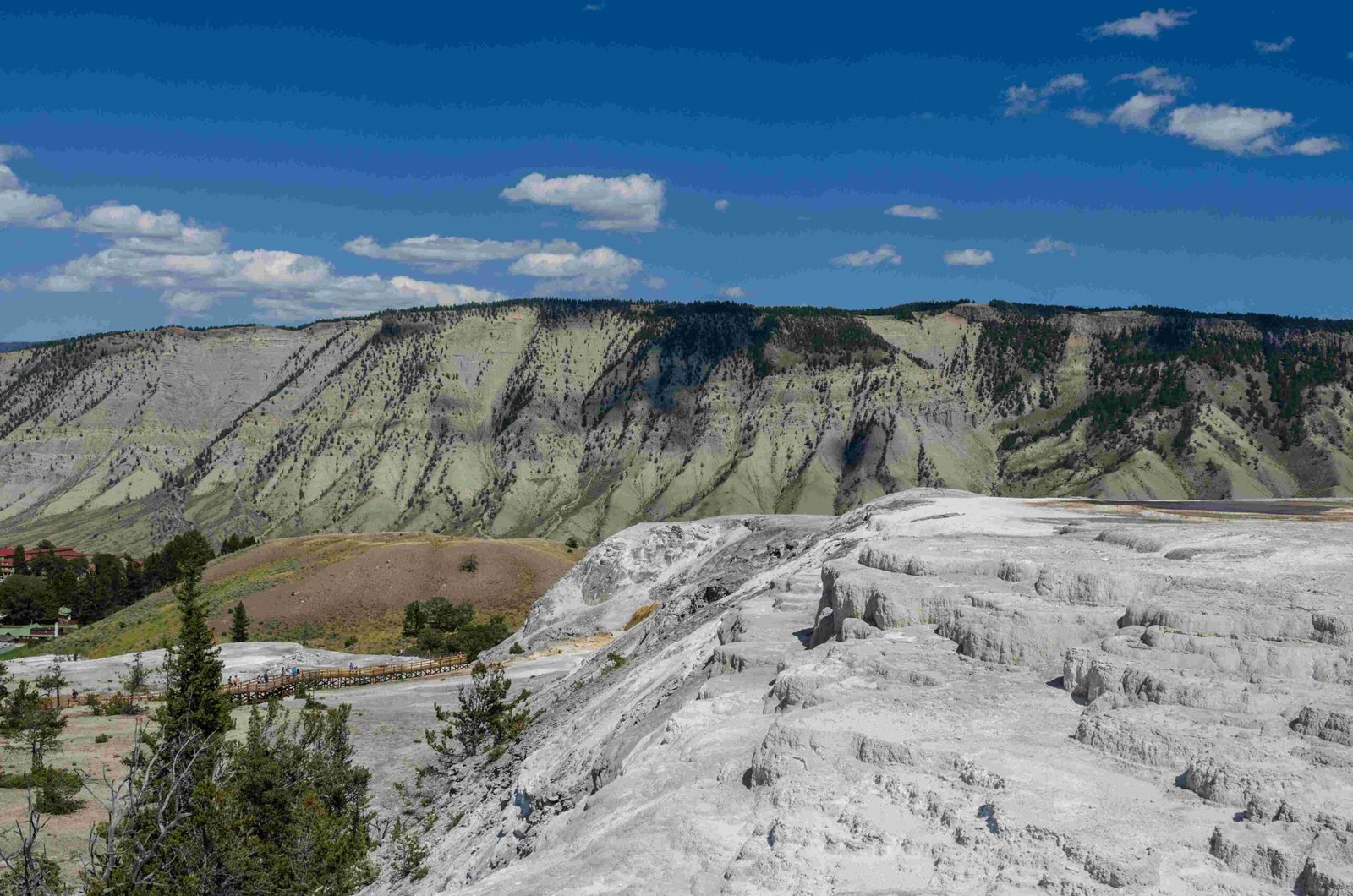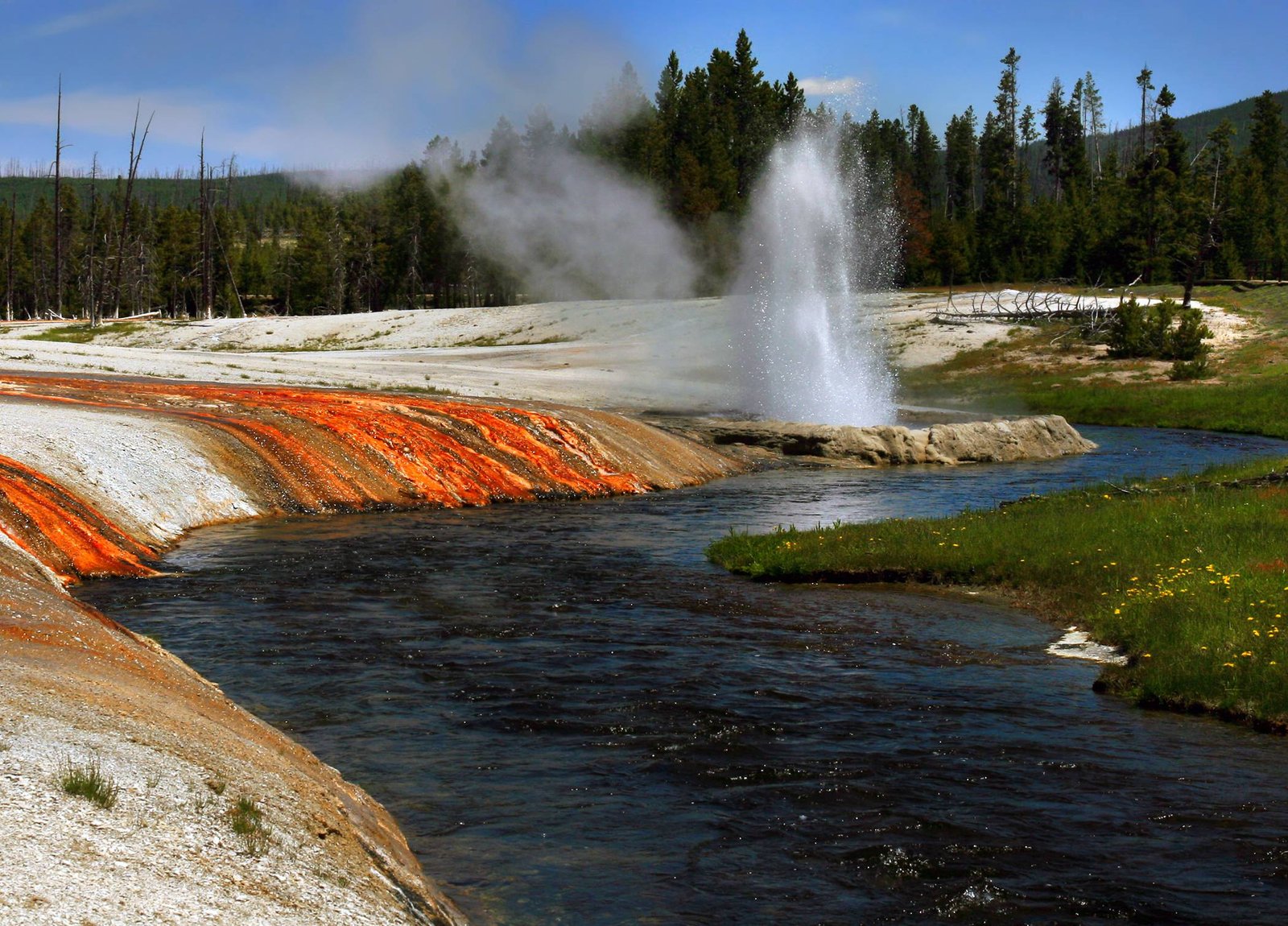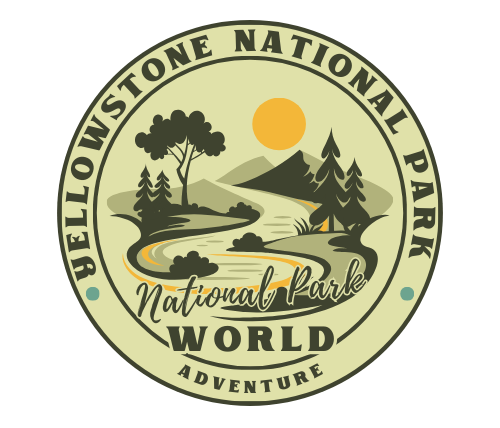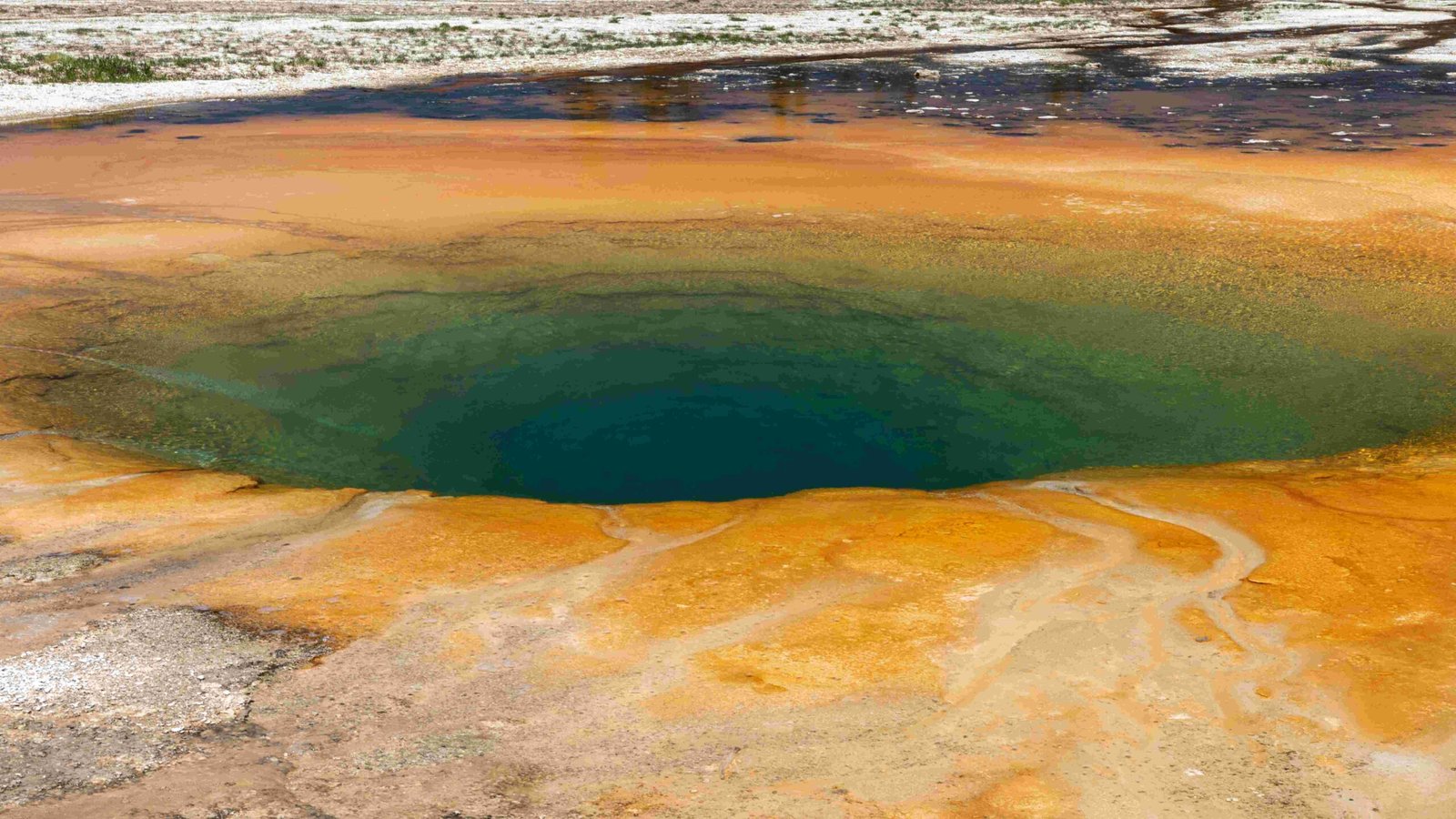The Fountain Paint Pot in Lower Geyser Basin of Yellowstone National Park is a captivating geothermal area showcasing a diverse array of hydrothermal features. This unique location offers visitors the opportunity to witness bubbling mud pots, steaming fumaroles, colorful hot springs, and erupting geysers all within a compact area. The Fountain Paint Pot derives its name from the colorful, paint-like appearance of its mud pots, which range from pearly white to vibrant reds due to various mineral compositions and microbial activity.
What are the Geological Features of Fountain Paint Pot?

The Fountain Paint Pot area is a geological wonderland, offering visitors a glimpse into the dynamic processes occurring beneath Yellowstone’s surface. Here are the key features:
- Mud Pots:
- Acidic features with limited water supply
- Composed of clay minerals and fine silica particles
- Colors range from white to pink and orange-red
-
Temperatures can reach up to 202.8°F (94.3°C)
-
Hot Springs:
- Clear, blue pools of superheated water
- Temperatures vary but can exceed 199°F (93°C)
-
Home to thermophilic bacteria creating colorful mats
-
Geysers:
- Fountain Geyser: Erupts every 4-15 hours
- Clepsydra Geyser: Near-constant eruption
-
Morning Geyser: Infrequent but powerful eruptions
-
Fumaroles:
- Steam vents releasing hot gases
- Temperatures can exceed 300°F (149°C)
How Does the Chemical Composition Affect the Area?

The unique chemical composition of the Fountain Paint Pot area plays a crucial role in shaping its features and appearance:
- Gases:
- Steam, carbon dioxide, and hydrogen sulfide rise from deep within the Earth
-
Interact with hot rock, producing steam and breaking down rock into clay and minerals
-
Hydrogen Sulfide:
- Contributes to the characteristic rotten egg smell
- Supports microorganisms that convert it into sulfuric acid
-
Sulfuric acid further breaks down surrounding rock
-
Mineral Content:
- Clay, opal, and quartz contribute to the varied colors of mud pots
-
Iron oxides create reddish hues in some features
-
Microbial Activity:
- Thermophilic bacteria thrive in extreme temperatures
- Create colorful mats in and around hot springs
- Different colors indicate various temperature ranges
What is the Best Time to Visit Fountain Paint Pot?
Choosing the right time to visit can greatly enhance your experience at the Fountain Paint Pot:
- Early Morning:
- Best for peace and quiet, especially during summer
- Avoid crowds for a more serene experience
-
Better chances of wildlife sightings
-
Seasonal Considerations:
- Summer (June-August): Peak season, busiest but all facilities open
- Spring/Fall (May/September-October): Less crowded, mild weather
-
Winter (November-April): Limited access, unique snow-covered landscapes
-
Geyser Eruption Times:
- Check with visitor centers for predicted eruption times of Fountain Geyser
- Plan your visit around these times for the best experience
How Accessible is the Fountain Paint Pot Area?
The Fountain Paint Pot area is designed to be accessible to most visitors:
- Boardwalk:
- Leaves from the parking area
- Forms a loop around the thermal features
-
Allows safe exploration without navigating difficult terrain
-
Parking:
- Dedicated parking lot near the Fountain Paint Pot area
- Located near Firehole Lake Drive
-
Note: Parking lot and trail were relocated after the 1959 Hebgen Lake earthquake
-
Visitor Facilities:
- No specific amenities at Fountain Paint Pot itself
- Part of larger Yellowstone infrastructure
- Nearby visitor centers offer various services and facilities
What Safety Precautions Should Visitors Take?
Safety is paramount when visiting the Fountain Paint Pot area:
- Stay on Designated Paths:
- Always remain on boardwalks and marked trails
-
Protects both visitors and fragile thermal environment
-
Temperature Awareness:
- Hydrothermal features can cause severe burns
-
Keep a safe distance from all thermal features
-
Child Supervision:
- Closely supervise children at all times
-
Educate them about the dangers of leaving the boardwalk
-
General Safety:
- No running, pushing, or shoving on boardwalks
- Do not touch or disturb hydrothermal mats
-
Be prepared for sudden weather changes
-
Wildlife Safety:
- Maintain safe distances from all wildlife
- Never feed or approach animals
By following these guidelines, visitors can safely enjoy the unique and captivating features of the Fountain Paint Pot in Lower Geyser Basin, Yellowstone National Park.
References:
1. Yellowstone Insider: Yellowstone Spotlight: Fountain Paint Pot
2. U.S. National Park Service: Fountain Paint Pot – East
3. National Parked: Fountain Paint Pots Thermal Area – Yellowstone

